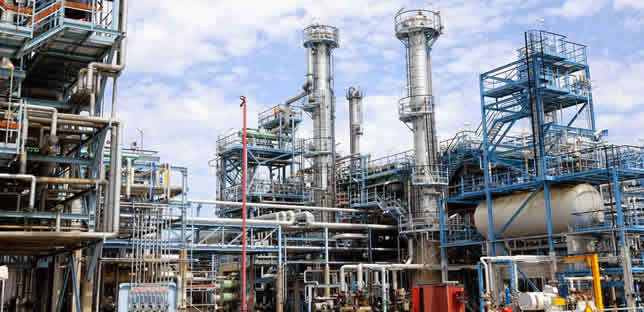 President Muhammadu Buhari has ordered the issuance of import waivers for three of the modular refineries in a bid to boost the projection by the Federal Government that Nigeria would begin fuel exportation by the end of 2019.
President Muhammadu Buhari has ordered the issuance of import waivers for three of the modular refineries in a bid to boost the projection by the Federal Government that Nigeria would begin fuel exportation by the end of 2019.
The projection is being threatened by imminent failure of 33 modular refinery licensees across the country as they were yet to secure Authority to Construct (AtoC) several years after the Department of Petroleum Resources (DPR) issued them.
According to a document issued by the Ministry of Petroleum Resources, President Buhari took the decision to issue the waivers to encourage investors.
“What government is doing to encourage investors include issuance of waivers by President Muhammadu Buhari of custom duty for the three modular refineries that are in advanced stages in Rivers, Delta and Imo states.
“It means that all the equipment that will be brought in after being vetted by the government would be brought in for free without payment of custom duty,” the document stated.
“That would save them a good amount depending on the size and complexity of the refinery. Today, we have about 43 licensed new refineries, both modular and large sized refineries.
“We have 250,000 barrels licensed refinery that was given to Petrolex. Another 100,000 barrels license refinery was given to a company in Port Harcourt. There are many other modular refineries being established, from 1000 to 30000 barrels capacity.
“The objective of modular refinery is to ensure that the big capital requirement, which seems to be the major reason why refineries are not established is overcome by building small size refineries.” About 10 of the refineries have, according to the government, been issued authority to construct, meaning that they have already been given a licence to establish, and have been certified by the DPR. “Two of the refineries are almost ready for commissioning any time soon,” Chairman, Federal Government’s Zero Gas Flaring Scheme, Mr. Bello Sulaiman, added.
“ One of them in Rivers State is a 10,000- barrel capacity refinery made up of two modules of 5,000 each, and have reached mechanical completion stage.
“A 7,000-barrel capacity modular refinery is located in Kwale, in Delta State, others are spread across the states including Imo, Nassarawa, and Lagos.
“Refineries cannot be too many in Nigeria. We want to ensure that all our crude is not exported. We want crude to be refined in Nigeria so that we can take advantage of the total value chain of crude oil conversion.”

CBN Introduces New Nationwide Cash-Withdrawal Limits
Nigeria’s Foreign Reserves Hit $46bn For First Time Since 2018 — CBN
Nigeria’s Oil Output Rises Slightly to 1.4m Barrels Daily
President Tinubu Seeks Senate Nod For ₦1.15tr Domestic Loan